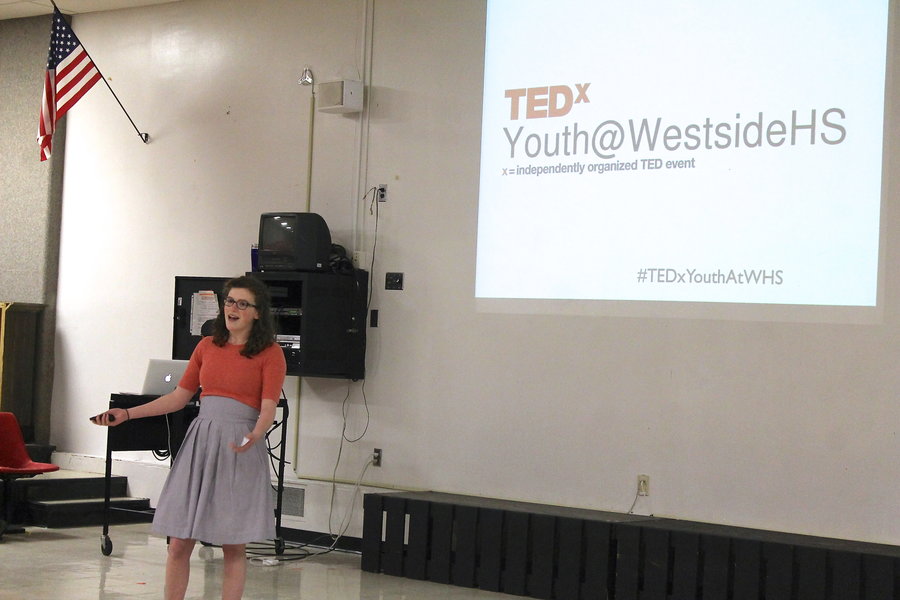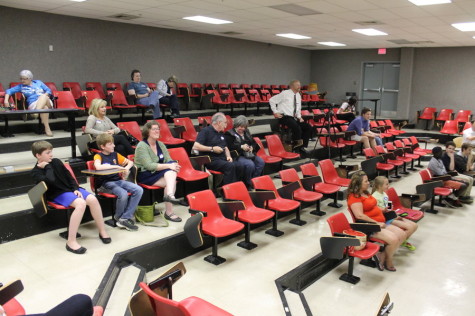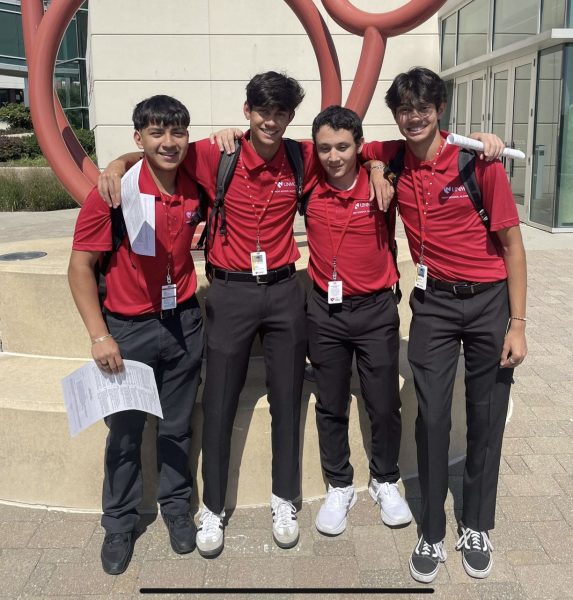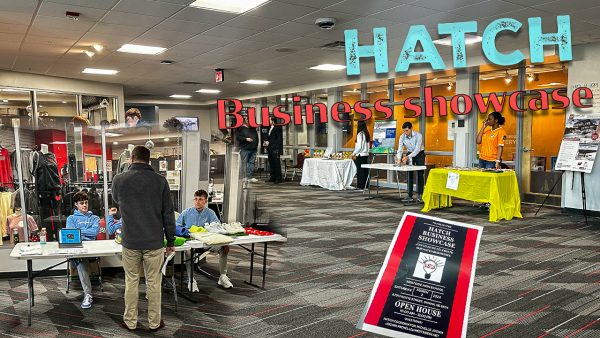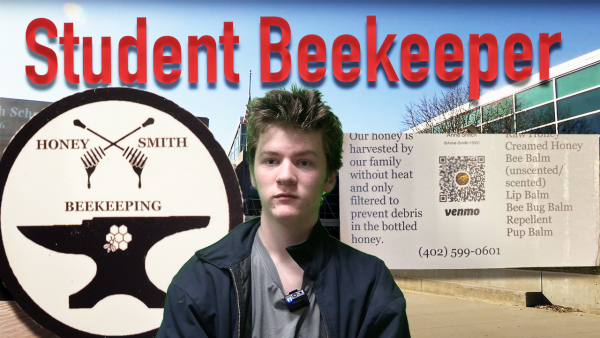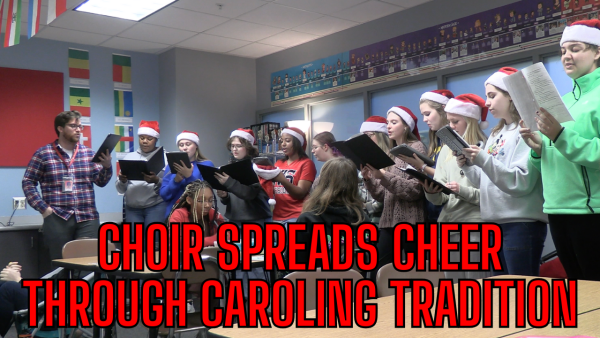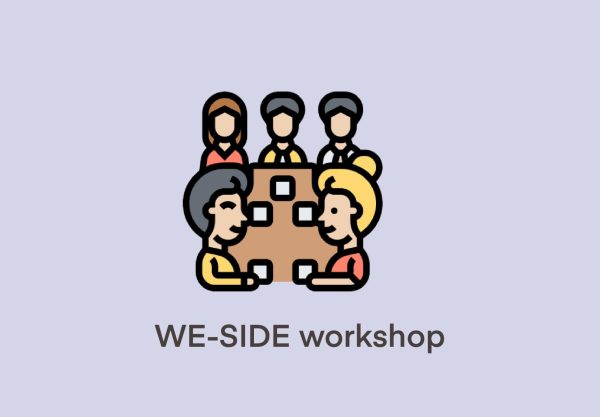Senior brings TEDx event to Westside
TED (technology, entertainment, design) is a nonprofit organization known for its many talks about interesting topics in the world. Whether it be psychologist Amy Cuddy’s talk on body language, or The Fault in Our Stars author John Green’s on “how online communities are helping to build learning maps that encourage students”.
Now while TED talks come in a variety of different subject matter and length, they can be divided into two kinds: A plain TED talk, and a TEDx talk. The “x” in “TEDx” means “independently organized”. So many different cities, groups, and organizations bring together a multitude of speakers for their own TED events. In fact, Green’s talk was at a TEDxIndianapolis event (Indianapolis is his hometown).
Senior Ruby Hickman decided to bring a TED event to Westside High School after attending TEDxOmaha this past October and TEDxDuchesneAcademy this past November.
Hickman’s TEDxYouth event was held Monday, April 21 at the high school with four speakers in total giving insight into their passions and talents. One of the speakers was junior Emma Sherman, who spoke about women authors, or the lack thereof, in science fiction.
“Whenever you look at classic science fiction novels, all of the authors are always men. There are almost no women in science fiction who are popular or praised for their work. There are only a couple of series [written by women] that have become best-selling, but they’ve never stayed best-selling and they’ve never been classics. It’s always men. Part of it is that women are discouraged in writing – I remember when I first started writing in science fiction, I got comments [from other forum users] all the time saying that because I was a girl I should be writing romance novels, or I shouldn’t be writing because I’m a girl. So that’s what I wanted to talk about,” Sherman said.
Organizing the event itself was a long, arduous process. To even be considered to be allowed to hold a TEDx event, Hickman had to apply for a TEDx license, which after being filled out, takes a maximum of six weeks for TED to look over. TED got back to Hickman after eight weeks. Despite the extra two weeks, once Hickman got her licensed approved she started scouting out speakers for the event, and setting deadlines not only for herself, but for the speakers as well.
“I went through teachers,” Hickman explained, “and asked ‘Do you have any innovative students doing things outside of school, or doing some activity that is really interesting?’”.
Once Hickman got a list of names back from different department heads, she began contacting the various students and narrowed it down to five for the event, which would eventually end up being four due to one student dropping out the Friday before the event.
Hickman has also used her experience organizing a TEDx talk for her senior project. Her product for her senior project being not the event itself, but a book on her experience organizing a TEDx talk, full of personal anecdotes.
“There’s a TEDx organizer’s manual that’s like 150 pages that TED made, and that’s really helpful, and I took that and made it something different that wasn’t repeating what they [TED] were saying. I added personal anecdotes, such as ‘don’t apply three months before you want to have your event, apply six months before’,” Hickman said.
But despite all of the nail-biting, hair-pulling, and students dropping out, Hickman feels satisfied with how her TEDxYouth event turned out:
“I was expecting the worst, I had a couple of nightmares that no one would come. And I was worried that the videos I played wouldn’t stop playing in the middle. Thankfully we [Hickman and her volunteers] didn’t have many problems.
Your donation will support the student journalists of Omaha Westside High School. Your contribution will allow us to purchase equipment and cover our annual website hosting costs.


